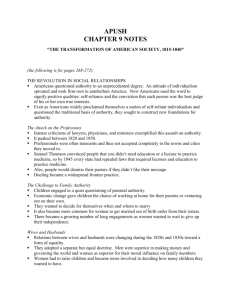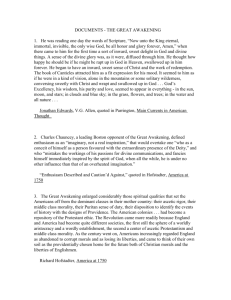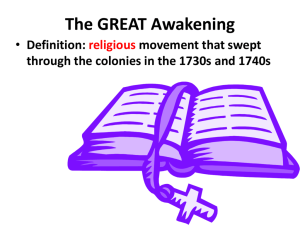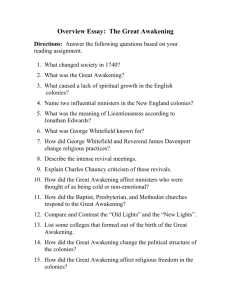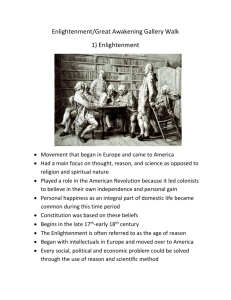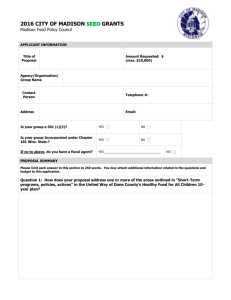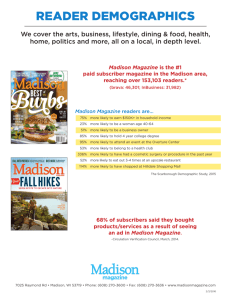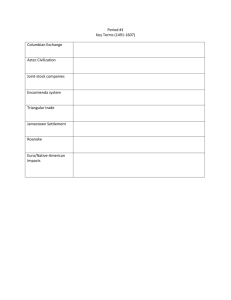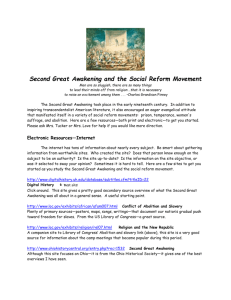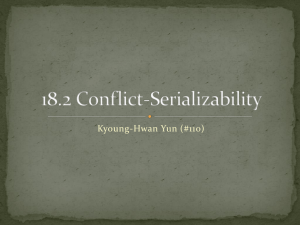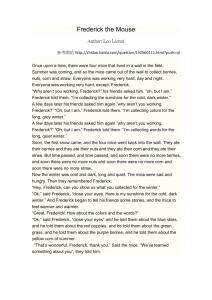APUSH Unit One (1491-1607)
advertisement
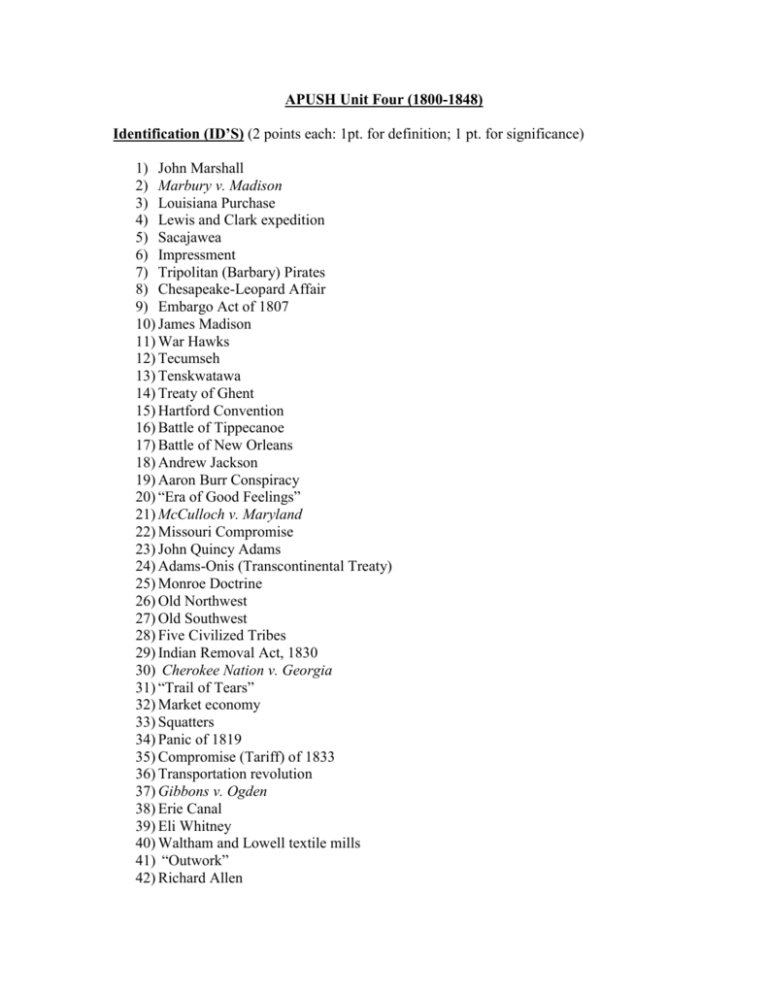
APUSH Unit Four (1800-1848) Identification (ID’S) (2 points each: 1pt. for definition; 1 pt. for significance) 1) John Marshall 2) Marbury v. Madison 3) Louisiana Purchase 4) Lewis and Clark expedition 5) Sacajawea 6) Impressment 7) Tripolitan (Barbary) Pirates 8) Chesapeake-Leopard Affair 9) Embargo Act of 1807 10) James Madison 11) War Hawks 12) Tecumseh 13) Tenskwatawa 14) Treaty of Ghent 15) Hartford Convention 16) Battle of Tippecanoe 17) Battle of New Orleans 18) Andrew Jackson 19) Aaron Burr Conspiracy 20) “Era of Good Feelings” 21) McCulloch v. Maryland 22) Missouri Compromise 23) John Quincy Adams 24) Adams-Onis (Transcontinental Treaty) 25) Monroe Doctrine 26) Old Northwest 27) Old Southwest 28) Five Civilized Tribes 29) Indian Removal Act, 1830 30) Cherokee Nation v. Georgia 31) “Trail of Tears” 32) Market economy 33) Squatters 34) Panic of 1819 35) Compromise (Tariff) of 1833 36) Transportation revolution 37) Gibbons v. Ogden 38) Erie Canal 39) Eli Whitney 40) Waltham and Lowell textile mills 41) “Outwork” 42) Richard Allen 43) African Methodist Episcopal Church 44) Cult of Domesticity 45) Catharine Beecher 46) Separate spheres 47) Horizontal allegiances 48) Vertical allegiances 49) Voluntary associations 50) Alexis de Tocqueville 51) Political democratization 52) Henry Clay 53) Andrew Jackson 54) Democratic Party 55) Spoils system 56) Nullification crisis 57) Second Bank of the United States 58) Whig Party 59) Panic of 1837 60) Second Great Awakening 61) Charles G. Finney 62) Mormons 63) American Temperance Society 64) Horace Mann 65) William Lloyd Garrison 66) Angelina and Sarah Grimke 67) Lucretia Mott 68) Elizabeth Cady Stanton 69) Seneca Falls Convention 70) Utopian communities 71) Robert Fulton 72) Samuel Slater 73) Livingston-Fulton Monopoly 74) McCormick reaper 75) “American System of Manufacturing” 76) New York Stock Exchange 77) Epidemics 78) Phrenology 79) Penny Press 80) Minstrel Shows 81) P.T. Barnum 82) American Renaissance 83) James Fenimore Cooper 84) Ralph Waldo Emerson 85) Henry David Thoreau 86) Margaret Fuller 87) Walt Whitman 88) Nathaniel Hawthorne 89) Herman Melville 90) Edgar Allan Poe 91) Hudson River School 92) George Catlin 93) Frederick Law Olmsted 94) Nat Turner 95) Upper South 96) Lower (Deep) South 97) Old South 98) Cotton Kingdom 99) Internal Slave Trade 100) Tredegar Iron Works 101) Plantation Agriculture 102) Pine Barrens People 103) Virginia Emancipation Legislation 104) The Impending Crisis of the South 105) George Fitzhugh 106) Southern Code of Honor 107) Task System 108) Gang Labor 109) Frederick Douglass 110) Free Blacks 111) Denmark Vesey 112) Harriet Tubman 113) Underground Railroad 114) Spirituals Short Response (10 points each) Grading will be on an A/F/zero score. (will discuss) 1) Describe the major issues that eventually led the United to declare war on Great Britain in 1812. 2) Analyze how each branch of government set precedence in our newly formed government. Describe how the precedence set by our founding fathers still plays a role today. 3) In what ways did the elections of 1828 and 1840 firmly establish the twoparty system in politics? 4) Discuss how the American social reform movement evolved out of the Second Great Awakening. 5) Compare the economic systems of the upper and lower South. In which region would slavery have died a “natural” death? Explain.
